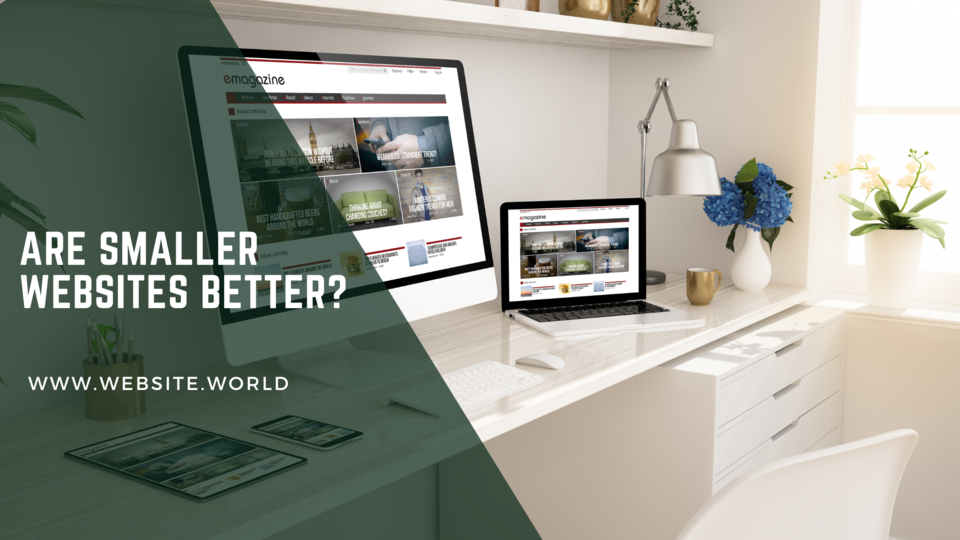Are Small Websites Better Than Big Websites?

It is often suggested that a small website is better than a big website. This is not true. Although it is somewhat easier to keep a small website up to date at all times, you are missing out on the "long tail" of the Internet. The bigger your website, the bigger the net to catch new fish.
Website Visitors Don't Always See Your Home Page
Many people think that website visitors will always walk in the front door of their website, i.e., the home page. Think about the last time you searched on an "off the wall" topic. Did you go straight to the home page, or did you find a page buried deep in another website that was relevant to the term you were searching on?
More often than not, visitors will land on a page deep within your website. Each product page on your website is generally optimised for that product name, so if someone searches for that product, then they will find that page directly, rather than your home page which might be advertising some other product range.
Once you understand this concept, you realise that the best way to take advantage of search engines is to build gigantic websites, where every single page is optimised for only one key phrase, and that's the key phrase entered by the searcher. You will want to think in advance about what the person is searching for.
You will also want to ensure that once the person has landed on your "landing pages" that your website is ready to answer their next question, for example, how to buy? Your call to action needs to be clear on all landing pages, and it needs to be an appropriate call to action considering the content of the page. Say you are advertising a popular product or providing accommodation, then it would be appropriate to provide a booking button or buy now button. However, if your keywords relate more to an illness or problem to be overcome by one of your products, then your call to action needs to be "click here to learn more about cures for XXXX" or "click here to learn about a solution". This way you can have your product or solution detailed in one place, but have several short and dedicated landing pages for all of the "issue based" keywords you are focusing on.
Your page navigation also needs to be consistent on all pages, and easily located. This makes it easier for users to get to the home page or contact us page next if that's what they want.
The only problem with achieving these large websites is ensuring that all these "landing" pages will be found. You need to ensure that all these pages are linked throughout your website, even if many of the pages have very similar content. A good way to do this is to use content sensitive links. These are links within the content of your website, rather than those included in the main navigation. Blogging style articles are a great way to think up unique content that will allow you to link to each of your keyword variations without being obvious. Just rephrase what you are writing in each paragraph, and then link to the alternative phrases landing page. In these landing pages, try to avoid using phone numbers, staff names or pricing. It will make it easier to update in the long run. Also ensure you use a CMS with a good text search feature, so it will be easy to update any typos or errors in the future.
So, go have a look at your website now, and think about how you can expand your content. Think advertorial. Aim for educational content that expands on all the good things about your products, rather than focusing on the just the products themselves. As soon as you get started, you will see that whole novels can be written, and soon after you will see your web traffic grow consistently. Take advantage of our free website trial to learn just how easy it is to build your website with us!
Posted: Monday 7 July 2008

